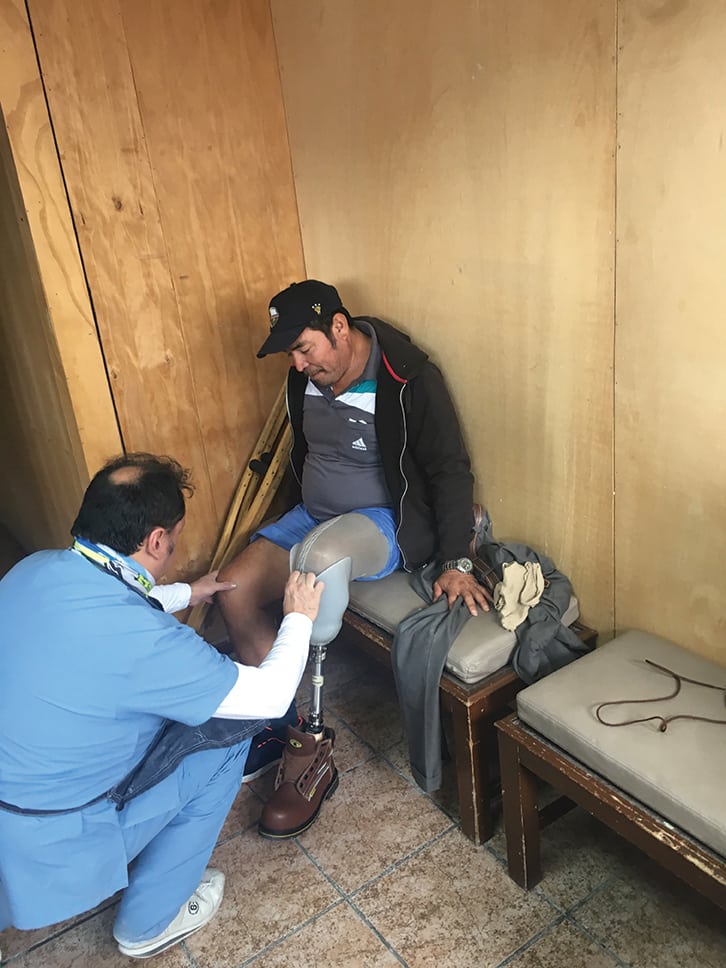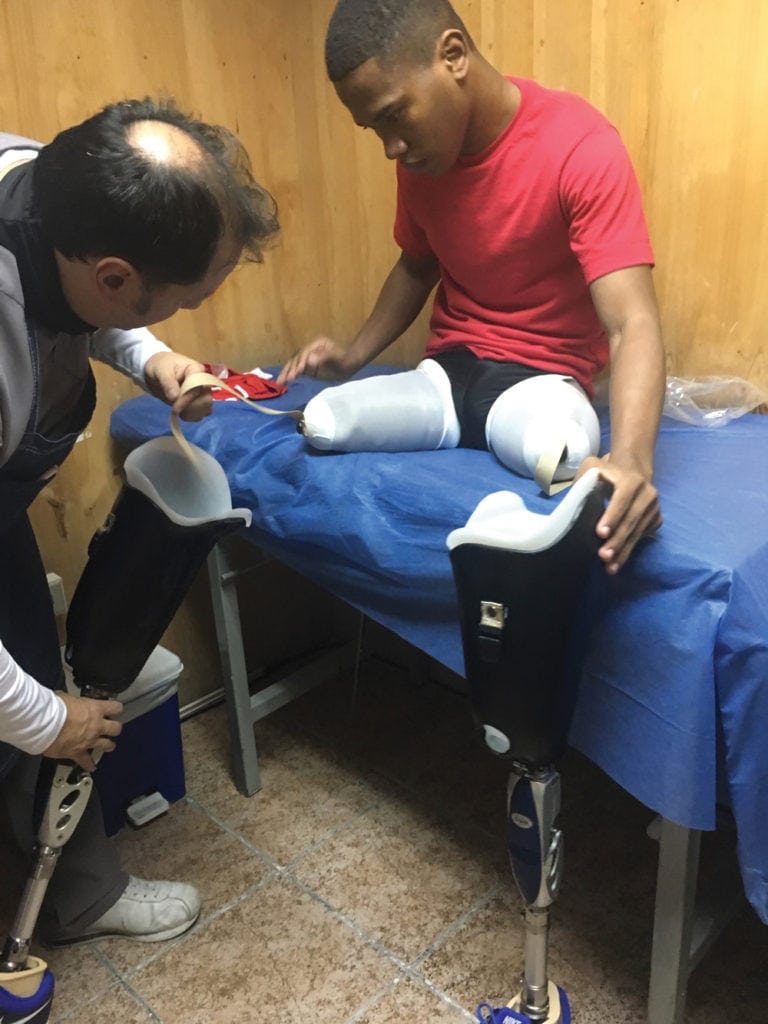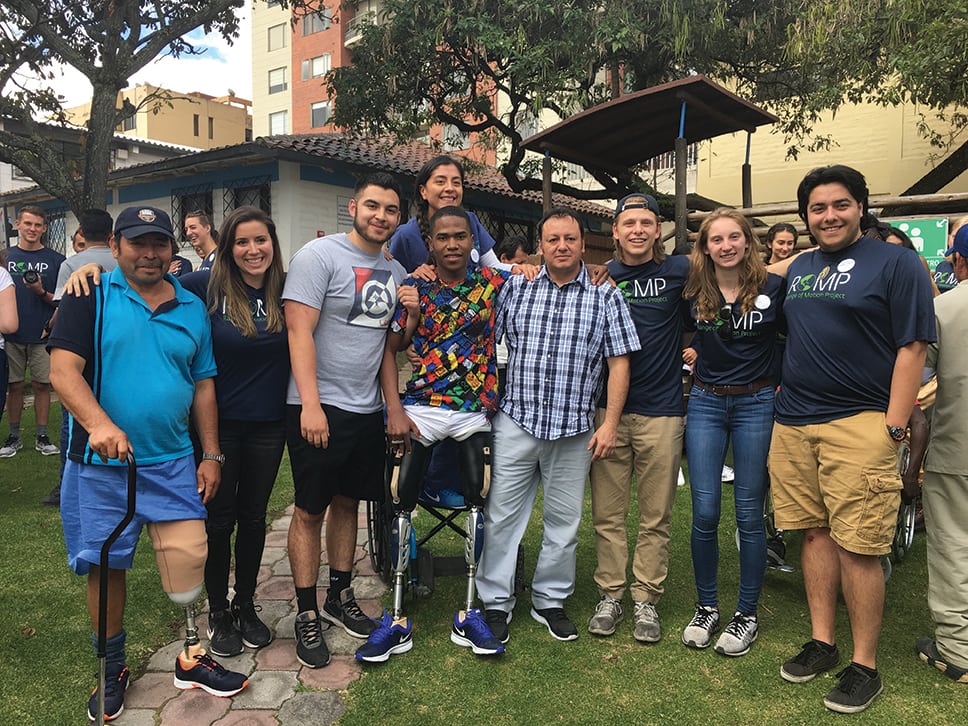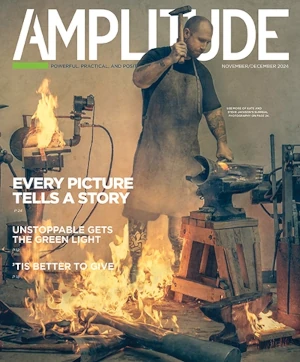By Mary Beth Skylis
Providing orthotic and prosthetic services to underprivileged communities is a challenge. In many cases, financial status determines whether or not an amputee will walk again. But the Range of Motion Project (ROMP) aims to alleviate this issue by providing care in hard-to-reach locales. “We believe in equal access to prosthetic and orthotic services that facilitate independence through mobility,” according to the nonprofit organization’s website. “We recognize the dual hardships of living in poverty with a disability and stand in solidarity with those who are made to suffer from an unequal distribution of care.”
From ROMP’s perspective, financial status shouldn’t determine whether or not an individual should have access to prosthetic and orthotic services. “Prosthetic limbs and orthotic braces are not simply medical devices, but instruments of personal empowerment,” its website states.

Assisting individuals who lack access to prosthetic care due to citizenship issues, lack of insurance, or financial hardship, ROMP’s goal is to normalize prosthetic access in poor communities. With operations in the United States, Guatemala, and Ecuador, ROMP also offers volunteer programs to educate and inspire the next generation of innovators.
Dominic Castillo, 21, recently traveled to Ecuador to participate in the organization’s volunteer program. Castillo, a third-year student at Colorado State University, wanted to get some hands-on experience working with practitioners to help him determine whether his future career will involve prosthetic care. As a dual major in biomedical and mechanical engineering, he likes seeing pieces fit together. “I always knew I wanted to be an engineer,” Castillo says. “And the ability to give people the chance to walk is awesome.”

Castillo says that while he was in Ecuador, “I had the opportunity to do everything the practitioners do, which helped me see what I want to do in the future.” Not only was working with ROMP the validation Castillo needed to continue his studies, but it also encouraged him to continue working in underprivileged communities. He hopes to travel to Guatemala to assist with ROMP’s operations in 2019.
“At the end of last semester, I was frustrated with school,” Castillo says. “Classes were getting harder. And I knew there were tons of paths I could take that would be easier. ROMP helped me realize what [all the hard work is] for. So, my goal is to design prosthetic limbs.”
Castillo’s time with ROMP also proved to be extremely gratifying. “Being able to work in the physical therapy office was an amazing experience because we got to witness amputees using their new [prostheses],” he says.
In a journal that he kept while working with ROMP, Castillo explained how rewarding it is to observe amputees in action. “After a long day of work, we had the opportunity to play soccer, volleyball, and basketball with a couple of amputees that were absolutely amazing at soccer,” he wrote. “It was awesome to see these amputees not let anything hold them back.”

As his week ended, Castillo marveled at the patient progress he witnessed. “Before our job was done,” he notes, “Milton was able to walk completely on his own, and Jeremy was able to make huge progress on his walkers and parallel bars. He was able to get to the point where he began to trust his legs.”
Castillo’s journey took him through various phases of prosthetic design. First he created molds, and then he wrapped them in plastic, sometimes adding more than a single layer. Then they heated the plastic to make it pliable. “I learned how much goes into [building prosthetic limbs] and how many specialists are involved,” Castillo says. “There are a lot of hands-on people who constantly work together to change lives.”
ROMP has been a key element in shaping Castillo’s vision of his future. Not only has the organization had a tremendous impact on amputees in underprivileged communities, it’s also encouraging the next generation to step up and continue its mission of providing equal access to care.
“This experience has been truly life changing and will be something I never forget,” Castillo says. “Giving people the tools to regain the ability to walk again and seeing their reaction as you carry in their new [prosthesis] was such an amazing feeling. I now know that biomedical and mechanical engineering was the right path for me, and I strongly feel like there is nothing better I can do as a career.”



